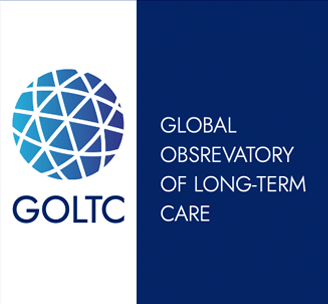Sarah Barber
World Health Organization
Sarah Barber

Dr Sarah Louise Barber is a health economist and policy specialist. Before becoming Director of the WHO Kobe Centre, she worked on strategic policy issues with the World Health Organization, including as Senior Health Policy Advisor in the Office of the Regional Director for Africa, WHO Representative to South Africa, Team Leader for Health Systems Development in China, and Health Policy Advisor in Indonesia and Cambodia. Prior to working with WHO in China, she was managing evaluation research at the University of California Berkeley’s Institute of Business and Economic Research, and the National Institute of Public Health in Mexico.
FURTHER INFORMATION
| Countries | Japan; |
|---|---|
| Topics | Care economy; Care innovations; Care integration/ coordination; Economics of LTC; Financing LTC; Governance and LTC systems organisation; LTC insurance; LTC Policy; LTC Reforms; LTC Systems; LTC systems in LMIC countries; LTC Workforce; |
| Methods | Case studies; Comparative policy analysis; Economic evaluation; Literature reviews and synthesis; Policy analysis; Surveys; Systematic Review; Trials and other evaluations; |
| Role | Research; |
| Interest Groups | Care and social protection in Southern Africa; Economics of Long-Term Care; Long-Term Care Policy; |
| Website | https://wkc.who.int/ |
| ORC.ID | 0000-0002-3117-2994 |
| Research interests | health economics and policy analysis, human resources, insurance and provider payment reforms, quality of care, impact evaluation, fiscal policies, long-term care financing |
| Key publications | Research brief series. Long-term care financing: lessons for low- and middle-income settings World Health Organization. (2023). Long-term care financing: lessons for low- and middle-income settings: brief 1: drivers of the demand for long-term care. World Health Organization. https://iris.who.int/handle/10665/375891 World Health Organization. (2024). Long-term care financing: lessons for low- and middle-income settings: brief 2: decisions about population coverage of long-term care. World Health Organization. https://iris.who.int/handle/10665/376245 World Health Organization. (2024). Long-term care financing: lessons for low- and middle-income settings: brief 3: how countries finance long-term care. World Health Organization. https://iris.who.int/handle/10665/376276 World Health Organization. (2024). Long-term care financing: lessons for low- and middle-income settings: brief 4: determining the long-term care services covered in the benefits package. World Health Organization. https://iris.who.int/handle/10665/376277 World Health Organization. (2024). Long-term care financing: lessons for low- and middle-income settings: brief 5: aligning financing and delivery in long-term care. World Health Organization. https://iris.who.int/handle/10665/376615 World Health Organization. (2024). Long-term care financing: lessons for low- and middle-income settings: brief 6: ensuring financial protection in long-term care. World Health Organization. https://iris.who.int/handle/10665/376619 World Health Organization. (2024). Long-term care financing: lessons for low- and middle-income settings: brief 7: promoting quality and value in long-term care. World Health Organization. https://iris.who.int/handle/10665/376911 World Health Organization. (2024). Long-term care financing: lessons for low- and middle-income settings: brief 8: ensuring financial sustainability in long-term care. World Health Organization. https://iris.who.int/handle/10665/376937 World Health Organization. (2024). Long-term care financing: lessons for low- and middle-income settings: brief 9: Supporting workers in the formal long-term care system. World Health Organization. https://iris.who.int/handle/10665/378692 World Health Organization. (2024). Long-term care financing: lessons for low- and middle-income settings: brief 10: supporting informal long-term caregivers. World Health Organization. https://iris.who.int/handle/10665/379077 |

